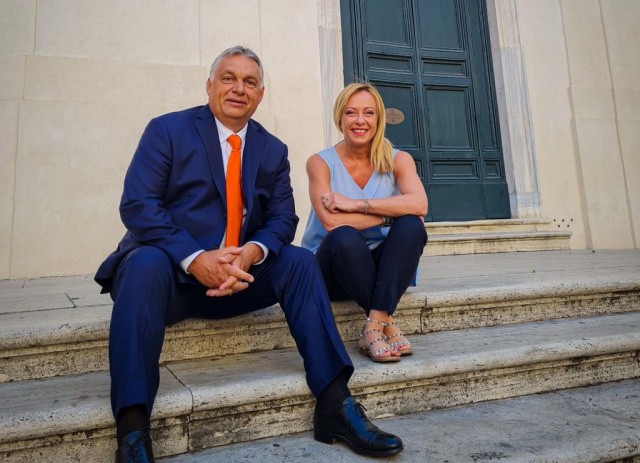In a captivating display of diplomatic finesse, Italian Prime Minister Giorgia Meloni, armed with charm, and French President Emmanuel Macron, complemented by the allure of French hospitality, successfully brokered a breakthrough deal that convinced Hungarian Prime Minister Viktor Orbán to agree to the European Union providing Ukraine with a substantial 50 billion euros in aid. The monumental decision unfolded during a special European Council in Brussels, where leaders convened to address the pressing issue.
Meloni’s persistent efforts to bridge the gap between Orbán and other European leaders bore fruit after months of courting the Hungarian Prime Minister. The duo, along with officials from their respective delegations, engaged in intense negotiations leading up to the special summit. Late-night discussions on January 31 and a strategic meeting at the Amigo Hotel in Brussels on February 1 played crucial roles in securing the breakthrough, Politico reports.
Adding to the diplomatic intrigue, Macron had his own tête-à-tête with Orbán in Paris, where he sought insights into the Hungarian leader’s vision for better integration of Eastern European member states into the EU over a dinner conversation.
The aid agreement was formally announced by European Council President Charles Michel at the beginning of the summit, following a decisive breakfast attended by Meloni, Macron, Orbán, Michel, European Commission President Ursula von der Leyen, and German Chancellor Olaf Scholz. However, Michel’s release of a photo from the breakfast drew criticism from some European leaders who joined the meeting later.
While Orbán’s concessions in exchange for lifting the veto are a subject of speculation, European leaders agreed to revisit the aid package for Ukraine annually and make necessary revisions within two years. Notably, Hungary will not hold veto power over these actions; at most, leaders can request a European Commission review.
The question of EU funds for Hungary, previously frozen due to concerns about the rule of law in the country, was also discussed during the breakfast. The European Council’s conclusion referenced the conditionality regime and emphasized the need for an objective, fair, impartial, and fact-based approach. Hungarian officials declared that legitimate EU funds for Hungary would remain with its people, while others hinted at possible flexibility with conditions attached.
Despite the breakthrough on aid, the issue of military assistance to Ukraine, totaling 5 billion euros under the European Peace Support Mechanism, remains unresolved. The European Council urged member states to reach an agreement on this matter by early March.

